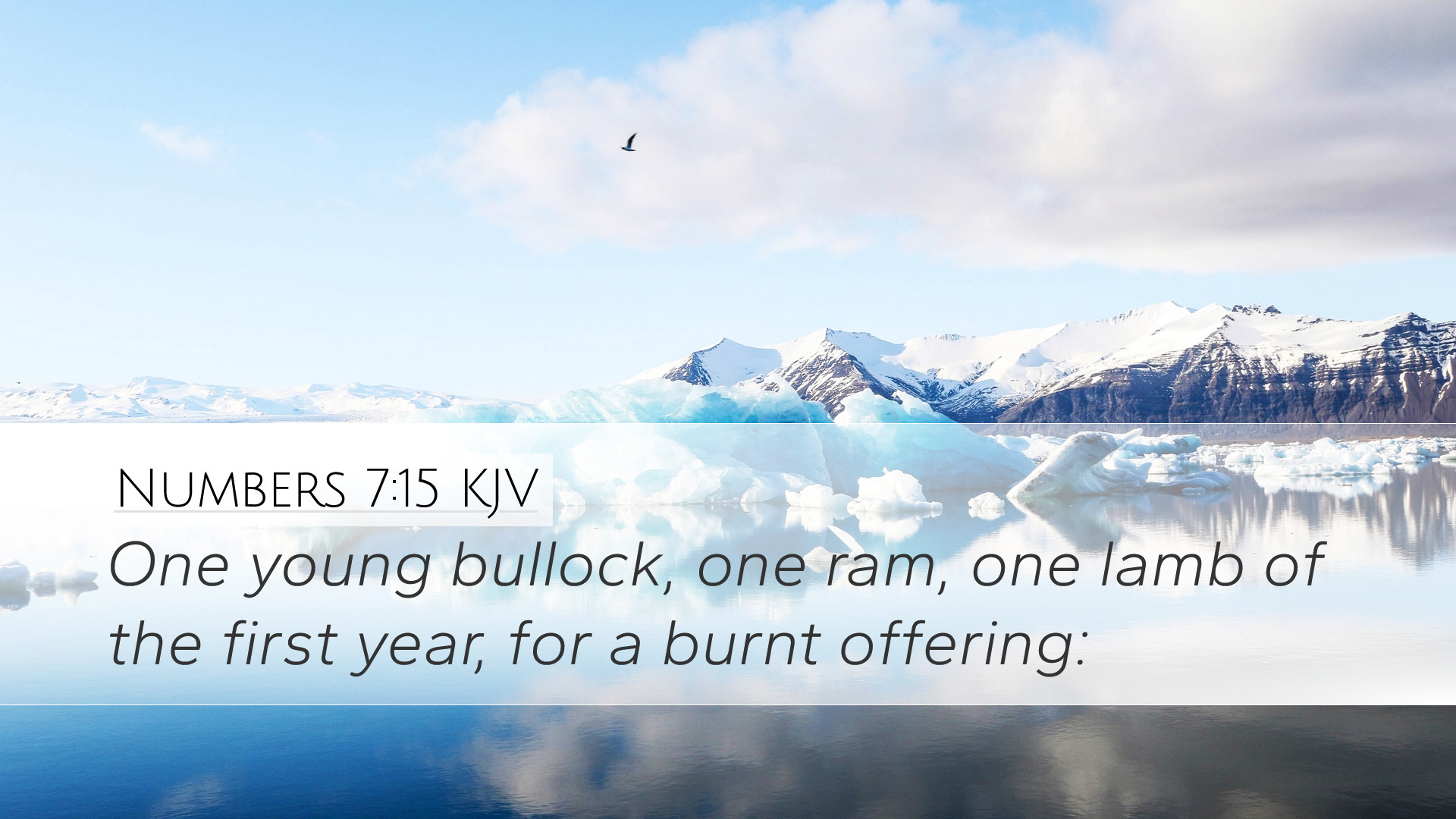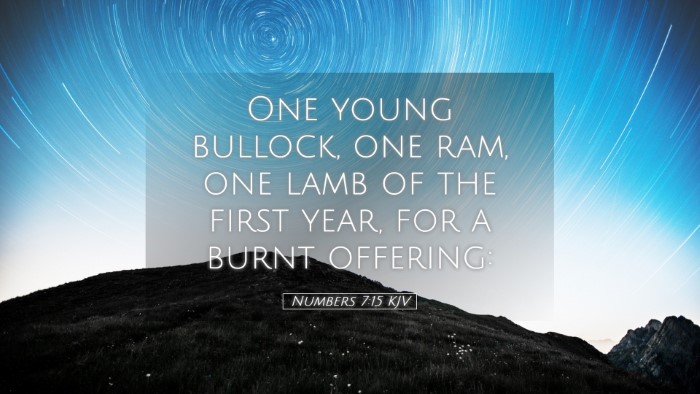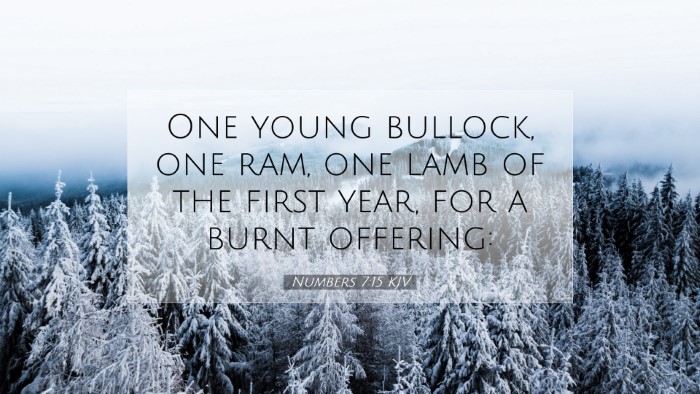Bible Commentary on Numbers 7:15
Verse: Numbers 7:15 - "And one young bullock, and one ram, and one lamb of the first year, for a burnt offering." (KJV)
Introduction
This verse is situated within the larger context of the offerings made during the dedication of the altar by the leaders of Israel. The specifics of the offerings, including the beast types and their symbolic meanings, provide critical insight into both the sacrificial system and the spiritual significance of these actions. Commentaries from revered theologians such as Matthew Henry, Albert Barnes, and Adam Clarke shed light on the importance of this verse for understanding the nature of worship, sacrifice, and the covenant relationship between God and His people.
Contextual Setting
The book of Numbers presents a historical account of Israel's wilderness wanderings and the establishment of God's laws. Numbers 7 stands out as it details the dedication of the tabernacle and the offerings brought by each tribal leader. This specific offering in verse 15 represents a communal dedication to the Lord, reinforcing the collective identity of Israel as God's chosen people.
Commentary Insights
Matthew Henry's Commentary
Matthew Henry emphasizes the role of sacrifice in worship, positing that the offerings are a key expression of devotion and gratitude. The young bullock symbolizes strength and the fullness of mature life, while the ram represents atonement and submission. The lamb, being the most innocent sacrifice, speaks to purity and love. Henry highlights that these offerings were not merely rituals but were deeply connected to the covenant between God and Israel, indicating that God desires a relationship founded on sacrifice and commitment.
Albert Barnes' Notes on the Bible
Albert Barnes’ interpretation delves into the significance of the specific animals used for sacrifice. He notes that the young bullock, ram, and lamb each serve unique purposes in the sacrificial system. The bullock was offered for atonement, the ram exemplified both dedication and peace, and the lamb represented innocence and submission. Barnes suggests these offerings reflect a holistic approach to worship, wherein each type represents different aspects of approaching God—atonement, dedication, and the acknowledgment of innocence in being before the Lord. This multifaceted approach illustrates that all dimensions of existence should be placed before God in worship.
Adam Clarke's Commentary
Adam Clarke provides a thorough analysis of the sacrificial framework within which this verse operates. He notes the historical context in which these sacrifices were made—in a communal setting that demonstrates unity among the tribes of Israel. Clarke emphasizes that these offerings symbolize the complete surrender to God's authority, as the participants recognized their dependence on Him. He further compares these Old Testament sacrifices with the ultimate sacrifice of Christ, providing a bridge between the Old and New Testaments. Clarke concludes that the intent behind these offerings resembles the heart of worship—acknowledgment of God’s sovereignty and the willingness to submit to His will.
Theological Implications
The offerings in Numbers 7:15 speak to broader theological themes such as atonement, community worship, and covenant fidelity. Understanding the sacredness of these animals within the sacrificial system provides modern believers with insights into the seriousness of approaching God. The type of sacrifice made becomes indicative of one’s heart posture towards God—are we giving Him our best? This verse thus calls into question the authenticity of worship and the necessity of preparing one's heart adequately before presenting sacrifices of praise or service.
Practical Applications
For pastors, students, and theologians, this verse and its commentary provide significant reflection points:
- A Holistic View of Worship: Worship should encapsulate all aspects of life, as embodied in the diverse offerings rendered.
- The nature of Sacrifice: Contemporary believers are invited to examine the quality and nature of their contributions to God, likened to sacrificial offerings.
- Collective Worship Experience: Understanding that worship is not an isolated act but that the community plays a crucial role in the expression of gratitude and devotion to God.
- Preparing Our Hearts: Before drawing near to God in worship, one must reflect on the condition of their heart, emulating the Israelites’ reverence in making offerings of the best they had.
Conclusion
Numbers 7:15 serves as a powerful reminder of the commitment inherent in worship and the sacrificial system of the Old Testament. By engaging with theological insights from revered commentaries, scholars and theologians gain a deeper understanding of the interplay between sacrifice, community, and divine relationship. This exploration not only enhances scriptural knowledge but also enriches the personal and collective worship experience in contemporary faith contexts.


